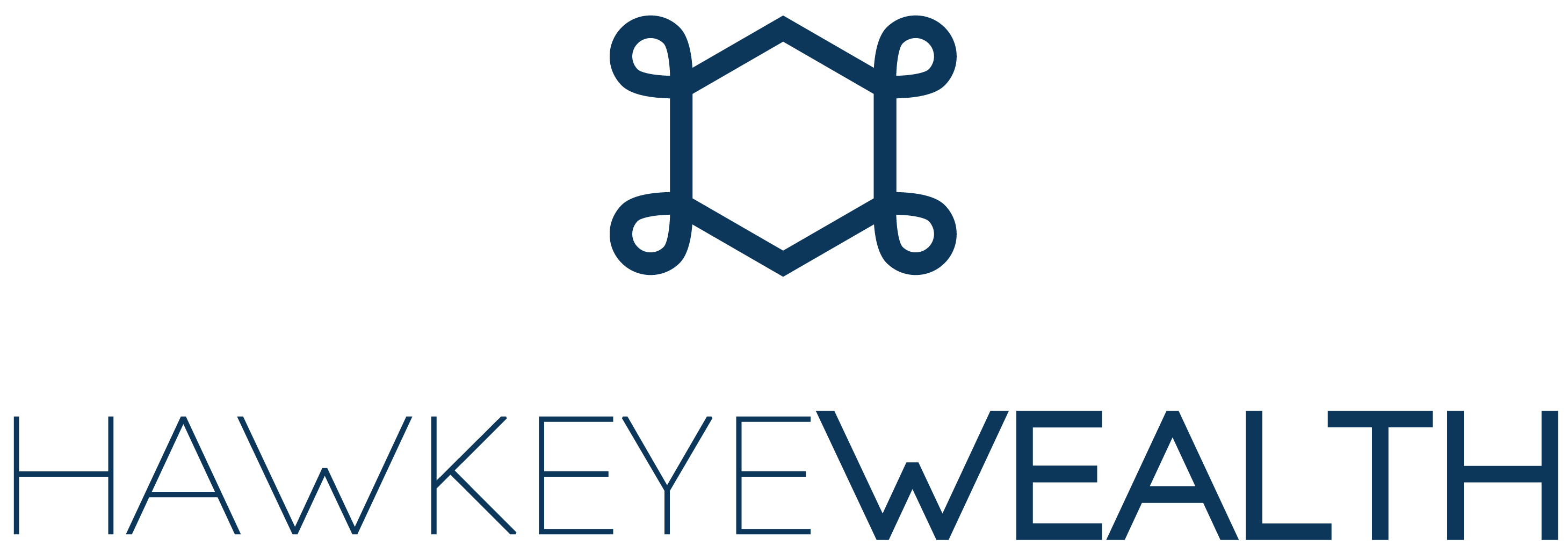Episode 214 – March 26, 2020
Listen On: Apple Podcasts | Spotify | Google Podcasts
Looking for an outsider’s perspective? Moody’s Analytics is an international company that helps the global financial elite make sound economic decisions. Past guest Brendan LaCerda, Associate Director and Chief Economist, joins Adam & Matt and discusses the rapid spread of COVID-19, the changing data, and projects real-time numbers as to where B.C’s economy is heading.
Got a pillow to hug? Maybe grab one of those full-sized maternity pillows and hunker down! How much will Vancouver real estate prices drop during the COVID-19 economic global recession? Where will BC’s unemployment be in 2020 and how will that shape our real estate market? And what does economic recovery look like post-pandemic? Welcome to our new reality. Pro-tip: it will get better.
Listen to Episode
Guest Information

Brendan LaCerda
Brendan LaCerda is an associate director and senior economist with Moody’s Analytics. Brendan serves as the lead analyst for the Canadian economic forecast. His primary responsibilities also include the development and improvement of country forecast models. His research is primarily focused on international macroeconomics, healthcare and fiscal policy. Before joining Moody’s Analytics, Brendan worked as a senior economist with IHS Global Insight’s U.S. Macroeconomic Service. Brendan received his PhD in economics from the University of Virginia. He pursued his undergraduate education at the London School of Economics and the University of Notre Dame, where he graduated with a BA in economics and mathematics.
Episode Summary
Who is Brendan LaCerda?
Brendan is the Associate Director and Senior Economist at Moody’s Analytics. He is based in Philadelphia but generally focuses on the Canadian Economy, working in the analytics and economic forecast division.
How will the outbreak of COVID-19 (Coronavirus) affect the global economy?
It seems increasingly likely that we are going to enter a global recession that is unavoidable. This is based on the sheer lack of economic activity that has just disappeared. It seems best to think about this crisis in 2 waves; first is the public health emergency, which includes all the quarantines and lockdowns – effectively hitting pause on the economy. The second wave will be the most likely credit crunch and the rise in unemployment. We need to be concerned about how long businesses can hold on if they have no revenues. Small businesses will be affected the most. It is hard to say how bad the recession will be because there is just a lot of speculation right now and a lack of hard data. Moody’s will be following the USA’s unemployment claims this week, which will provide some clarify about how bad the expected recession will be.
Is there a past recession that Moody’s is currently looking to for guidance?
The last crisis of 2008 is a good start. This last recession started with housing prices falling, foreclosures in the initial days. It became a bad recession when it eventually became a credit crunch. What we need to determine is when the current shutdown will turn into a long, grinding, painful recession when we see lots of businesses going under. As you know, it is much easier for a business to go from 100 employees to none, because everyone gets laid off. It is much more difficult to grow a business from 0 employees to 100. The longer this recession goes on for, the longer the eventually recovery will take.
Is Canada in a better position to handle a recession today than it was in 2008?
We are in a slightly better position to handle a recession today than we were in 2008. To clarify, Canadian’s have slowed the pace of their borrowing and the wage growth has been accelerating. We need to be less focused on household debt and more focused on the labour market. What drives home prices in Canada? There are factors, including interest rate spikes, but not as much as you would think.
If interest rates rise, you can adjust your discretionary spending and still make it work. If you lose your job, there is no reworking the household finances to keep you current on your mortgage payments.
If unemployment goes up 1 percentage point, we expect house prices to fall 4 percentage points. So, currently in Vancouver, unemployment is about 4-4.5%, but in a bad recession, this will increase to 9%. So, a 5-percentage point change will result in a 20% drop in home prices. The labour market is the lynch pin of the housing market.
Is there an area in Canada that is more vulnerable to a recession?
The most concerning thing is for cities that are the most globally connected. Cities like Vancouver and Toronto are the most globally connected and are growing the fastest. They are also becoming the hardest hit by COVID-19 (Coronavirus). This should suggest more economic pain for these cities. Energy prices have also crashed, oil is very low. Some of the smaller, less connected cities might see less effects because of this reason. Canada will be hardest hit in Vancouver, Toronto, Calgary & Edmonton.
Will COVID-19 (Coronavirus) cause US housing prices to drop?
The COVID-19 (Coronavirus) will not be a repeat of the housing crisis in 2008. This is not a housing specific crisis. The US Federal Reserve has announced that they will be undergoing infinite quantitative easing for the economy. This has not brought down mortgage rates at this time because investors have fears that homeowners will still default. Potential home buyers will not have confidence to take out a large expenditure for a new house. Given the uncertainty of this crisis, people will be hoarding food and money and not spending as much as they were 3 months ago.
Keep your finger on the pulse of Vancouver’s real estate market with our Live Wire email newsletter.
What is Moody’s using for timelines when forecasting a recession?
In the current baseline forecasts, Moody’s has the economy turning a corner in the late 4th quarter of 2020. Infections will start to level off and people will start getting back to work and unemployment will start to peak sometime after this. This is all based on assumptions at this time, since there is not a lot of hard data.
What will it take to stimulate the economy after COVID-19 (Coronavirus) infections start to level off and people are going back to work?
This will be in the hands of policymakers. Monetary and fiscal policy makers that will provide money to help people out. This is a different crisis because there is a health component where the public has to help flatten the curve. This environment creates an immense amount of uncertainty that will create uncertainty in the economy. Until we see a more forceful and successful public health response, it is hard to say how this will happen.
What is the worst-case scenario for the economy due to COVID-19 (Coronavirus)?
I don’t want to suggest that things will be that bad and I don’t think that end times are upon us. If you want to go back to the worst it has ever gotten, you would need to go back to the Great Depression. The probability that this crisis will get that bad is extremely low. What made the great depression so great was that the public policy response at the time was the exact opposite of what you would want to do. Government at the time shrank the money supply. What we are seeing today is a much more robust response by the Canadian and US governments, which should prevent another Great Depression.
What is your best guess for where we will be in 1 year, 5 years from the COVID-19 (Coronavirus) recession?
Our current best guest is that the economy continues to contract through 2020 and finally bottom out in the 4th quarter of 2020.
Unemployment is a lagging indicator and tends to bottom out after GDP does, which suggests that unemployment will bottom out in the 1st half of 2021, followed by the housing market as house prices are closely linked to employment and income. The economy may be forever changed by this.
There may be big changes to the cruise ship industry and the airline industry. There may be a transformation in the economy similar to what happened after the 2008 recession.
Are cities with healthy real estate markets going to be more resilient in terms of house prices rebounding?
This is a tough question to answer. The economic pain will be more acutely felt in these global cities that would also be associated with higher real estate prices. I would be optimistic about the recovery of these economies, although you could see people questioning their choices to live in small apartments in densely populated cities after this crisis.
How will the COVID-19 (Coronavirus) crisis affect Trump’s re-election chances in 2020?
Prior to the crisis, Moody’s was forecasting the election based on the economic data. Back as early as December 2019, we were forecasting that Trump was going to win re-election because the economy was doing well, and people tend to vote based on these pocketbook type issues. The COVID-19 (Coronavirus) will cause the darkest days for the economy just around election time. This will most likely make it harder for Donald Trump to win re-election than previously thought.
Keep your finger on the pulse of Vancouver’s real estate market with our Live Wire email newsletter.
Episode Host

Adam Scalena
Adam is a full-service realtor, specializing in Vancouver’s best areas. His systematic approach to real estate and dedication to his clients has consistently placed him within the top 10% of realtors operating within Greater Vancouver.

Matt Scalena
Matt is real estate obsessed and considers himself a lifelong student of the Vancouver real estate market. As a co-manager of the Scalena Real Estate team, Matt prides himself on expertly advising buyers and sellers on all aspects of the fast-paced, dynamic Vancouver real estate market. He is present at every stage of the process, from that first phone call or email right through to when keys are exchanged between sellers and buyers.







